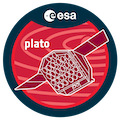Speaker
Description
The detection of exoplanets rely heavily on space-based transit surveys such as Kepler, TESS and PLATO. In these surveys, detecting and characterising small planets pose challenges due to their low signal-to-noise ratio (SNR). Traditional methods, such as the BLS, exploit the periodic nature of orbits to enhance the SNR. But these methods are fundamentally limited when gravitational perturbations between the planets disturb the periodic nature of their orbit. These perturbations lead to transit timing variations (TTVs), causing smearing of the transits and reduction of the detection significance. This can lead to an underrepresentation and inaccurate characterization of small planets embeded in compact systems. Consequently, there is a necessity for flexible approaches that capture signals of dynamically active small planets. Prominent examples of such approaches include for example QATS [Carter et al. 2013, ApJ, 765:132] and RIVERS [Leleu et al. 2021, A&A, 655:A66], as these methods enable the detection of non-stricly periodic signals. After exposing the problem of detecting quasi-periodic signals, I will present adapted methods and my ongoing work to improve them. I will also present a comparison of the performance of these methods on the retrieval of 850 low SNR KOIs.

